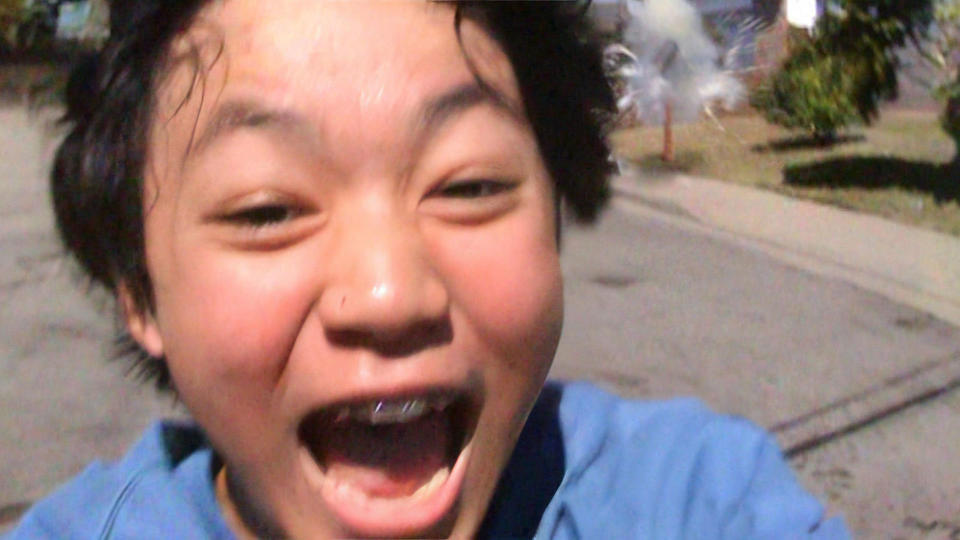The Biggest Breakout Filmmaker of Sundance 2024 Is Also a Current Oscar Nominee


“It’s not lost on me that I am probably having the most insane week in a filmmaker’s life,” said 29-year-old Sean Wang, speaking to IndieWire from atop a ski slope right before his producers began to pelt him with snowballs.
Days earlier, fresh off premiering his narrative feature debut (and eventual Audience Award winner) “Dìdi (弟弟)” to a sold out crowd at the 2024 Sundance Film Festival, the “Nǎi Nai and Wài Pó” helmer took a quick detour to his hometown of Fremont, California to be alongside his grandmothers at five in the morning, as it was announced that his film that they starred in was nominated for the Oscar for Best Documentary Short. “[Afterward] we had to get back on a plane to Park City for a screening. So, it was a very hectic and amazing and chaotic morning,” said Wang.
More from IndieWire
Focusing on the Academy Award-nominated “Nǎi Nai and Wài Pó,” the idea to make a humorous, existential piece about his grandmothers came from a Christmas card he had shot with them in 2018. “It was a short where Wài Pó and Nǎi Nai try to feed me blueberries, I say ‘No,’ and then they basically tie me up, kill me, and bury me in the backyard,” said the filmmaker. “It’s really silly and stupid and chaotic, but it was the most fun I ever had making anything.”
Fast forward to 2021, when Wang moved from New York back to the Bay Area and could see and feel the uptick in anti-Asian hate crimes. Already living with his Nǎi Nai and Wài Pó, he instinctively turned his camera toward them again. “It was this juxtaposition of very extreme joy living with my grandmothers, seeing them, dancing with them, the silly slapstick feeling that you see in the film — that energy that we had when we were together, that they talk about — juxtaposed with extreme anger of seeing articles about people like them in our communities being victimized. And that feeling was compounded with the feeling of me growing up and seeing them age,” said Wang.
There was the reality too that any day could be the last day with his then 94-year-old Nǎi Nai. “I wanted to make something that was like a time capsule for this moment of all of us living together, me getting to spend time with them,” said the director. “Have something that could capture the joy and the pain and the silliness and the sadness. Something that was a really three-dimensional complex portrait of these two women in my life that I love so much.”
He added, “At its core, [‘Nǎi Nai and Wài Pó’] is a home video. And the thing with home videos is that they’re not for anybody except the person recording them and their family. And ultimately, if you take away the Oscars, you take away the festival wins, you take away the idea that Disney+ acquired it and it’s supporting it, we would’ve still made this movie. … First and foremost, it was for me and my family to have this time capsule and these memories of what our grandmothers were like at this very moment in time. That was the reason we made it. If people like it, great, but if not, I already am fulfilled with the reason and the intention [behind] it. That was successful.”
The spotlight is hitting Wang at a time where film shorts in general are gaining more attention. The dream used to be getting a festival run, and then becoming a Vimeo Staff Pick. Then journalistic brands like The New York Times and The New Yorker began distributing shorts on their YouTube pages, bringing the films to a more sizable audience.
“I remember when we got onto New York Times Op-Docs [with ‘H.A.G.S.’ in 2021], I was like, ‘Oh my God, this is legit. This is so legit,’” said Wang. Today, “you see more of a desire for even streamers like Hulu, Disney+, and Netflix, who see the value in shorts and want to acquire shorts and help produce shorts and give shorts a home that doesn’t live on the internet.”
In fact, the director believes that unlike some of his other shorts that have gone viral, the best way to experience his current Best Documentary Short contender is on the big screen. “I made ‘Nǎi Nai and Wài Pó’ to be watched theatrically because there are these moments where they’re a little bit more contemplative and patient, that I do think maybe if you were just watching it on your laptop, you could potentially click away,” said Wang. “But if you really let yourself settle into the story and these characters, and allow the patience and the quietness and the somberness to be a part of that experience, it’s part of the unique watching experience of that film.”
Part of the deal of “Nǎi Nai and Wài Pó” premiering on Disney+ is that it’s now the first installment of Disney’s “People and Places” revival. “To have that platform, to have that ability for people to watch it in that capacity, obviously they might still watch it on their laptop, I can’t control that, but just to have the option to have them watch it in a way that feels a little bit more elevated is amazing,” said the director. “Especially for shorts filmmakers, because you do put so much work into a short film. Just because it’s a short film doesn’t mean it’s any less work than a feature.”

Speaking of, Wang’s narrative feature debut “Dìdi (弟弟),” a coming-of-age dramedy about a Taiwanese American boy discovering skating, flirting, and how to be a better son to his mom, was acquired by Focus Features for distribution shortly after its Audience Award: U.S. Dramatic win, and a U.S. Dramatic Special Jury Award for Best Ensemble that went to a cast that includes his Wài Pó’, Chang Li Hua.
“The fact that this little movie that was ours for so long is now not ours anymore. It belongs to audiences. And to see the audiences respond to it in such an amazing, positive, visceral way, and to have filmmakers and actors and artists who I’ve looked up to be like, ‘I can’t wait to see your movie,’ it’s really an out-of-body experience,” said the director. A particular highlight is “The Bear” star Ayo Edebiri adding “Dìdi” to her legendary Letterboxd watchlist.
Despite all the snowballs that have hit him throughout the mountaintop conversation, Wang is happy that he has his producers with him to celebrate the good fortune his whirlwind week has brought. “If I was going through it alone, it would be really scary and a little too much. But the fact that I got to really share these moments in my life that, again, I think every filmmaker dreams of, and to have both happen to me in the course of a week, to get to share that joy with my family and my friends, that’s the best feeling,” said the director.
There is even a metaphor to be found in the snowy assault he’s fallen victim to. “It’s indicative of what the past week of my life has felt like,” said Wang. “A lot of joy. A lot of things coming at me all at once.”
“Nǎi Nai and Wài Pó” will begin streaming on Disney+ on Friday, February 9.
Best of IndieWire
2023 Emmy Predictions: Who Will Win at the Primetime Emmy Awards?
2023 Emmy Predictions: Outstanding Documentary or Nonfiction Special
2023 Emmy Predictions: Outstanding Documentary or Nonfiction Series
Sign up for Indiewire's Newsletter. For the latest news, follow us on Facebook, Twitter, and Instagram.

 Yahoo News
Yahoo News 
